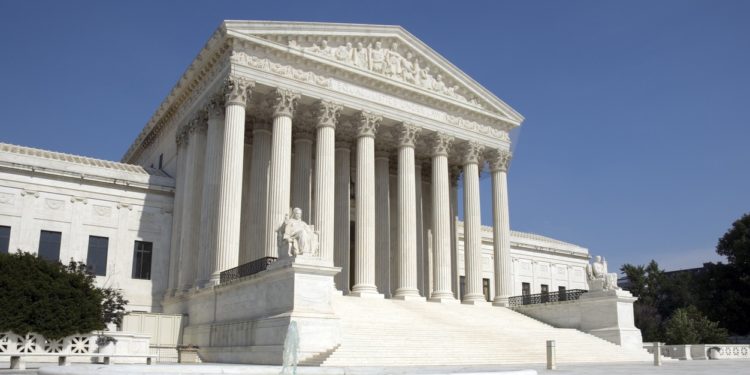On May 22, the U.S. Supreme Court granted a stay allowing for the Trump administration’s termination of Merit Systems Protection Board (MSPB) chair Cathy Harris to stand while her lawsuit challenging her termination works its way through the courts. The order formalizes a temporary emergency stay granted in April and means that the MSPB, the quasi-judicial agency which oversees retaliation cases for federal employee whistleblowers, will continue without a quorum needed to issue decisions.
Whistleblower advocates have characterized the firing of Harris without cause as creating a crisis for federal whistleblowers.
Harris was fired by President Trump on February 10. She quickly challenged her termination, claiming it was illegal because under federal law, members of the MSPB may be removed from office “only for inefficiency, neglect of duty, or malfeasance in office.”
While U.S. Court of Appeals for the District of Columbia Circuit issued a ruling temporarily reinstating Harris in April, the Supreme Court, in an unsigned order, stated that “the stay reflects our judgment that the Government is likely to show that both the NLRB and MSPB exercise considerable executive power.” While it has upheld removal protections for certain federal appointees, the Supreme Court has also struck down protections for appointees it deems to exercise considerable executive power.
Justices Kagan, Sotomayor, and Jackson dissented, noting that the 1935 Supreme Court cases upholding removal protections, Humphrey’s Executor v. United States, remains precedent.
In a recent paper, leading whistleblower attorney Stephen M. Kohn, Chairman of the Board of National Whistleblower Center, detailed concerns raised by the Founding Fathers around presidential removal powers in light of the Trump adminstration’s firing of Harris and other officials.
Kohn argues that regardless of the various arguments now being raised concerning the President’s removal authority, the warnings articulated by the Founders have never been refuted. If the Supreme Court were to conclude that Congress lacked the authority to limit the President’s power to fire, at-will, any and all executive officers, the fear articulated by Justice Joseph Story would become the law of the land, and as he warned, would be “eminently dangerous to the best interests, as well as the liberties, of the country.”
Furthermore, the lack of a quorum at the MSPB means that federal whistleblowers have no avenue for relief should they face retaliation for blowing the whistle. Without the two members needed for a quorum, the Board cannot issue final decisions in whistleblower retaliation cases.
For a period of five years from 2017 through 2022, the MSPB lacked a quorum. By the time quorum was established, the Board faced a backlog of over 3,500 cases. Some whistleblowers, whose cases already faced lengthy delays prior to the loss of quorum, saw their retaliation cases stretch on for over a decade.
The fact that federal employees are unable to have their cases heard in federal court and entirely reliant on the MSPB for whistleblower retaliation cases, has been heavily criticized by whistleblower advocates for years. They argue that federal employees deserve the right to a jury trial, given the lengthy delays and vulnerability to political pressure that comes with the MSPB.
On March 26, Senator Richard Blumenthal (D-CT) introduced the Congressional Whistleblower Protection Act of 2025, which gives access to jury trials to federal employee whistleblowers who face retaliation for providing information to Congress.
The passage of the Congressional Whistleblower Protection Act is one of the major campaigns of the National Whistleblower Center (NWC).
Join NWC in Taking Action:
Protect Federal Whistleblowers
Further Reading:
Paper Outlines Founding Father’s Warnings As Trump Goes After Key Whistleblower Appointees




